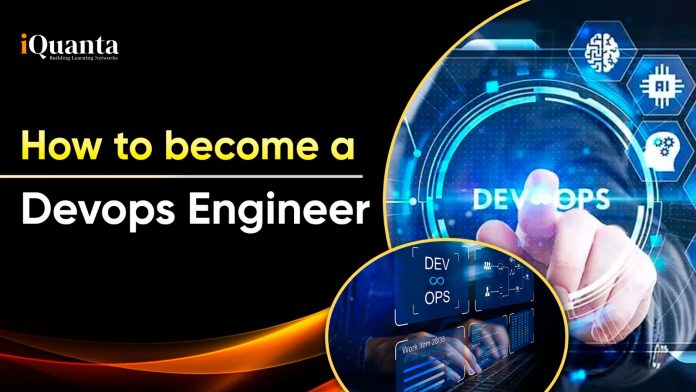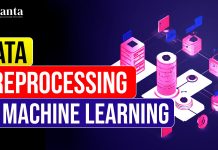These days the pressure on tech teams to build and ship software fast and without breaking things is higher than ever. That is exactly where DevOps engineers come in. They sit at the intersection of development and operations, helping teams release updates quickly, automate repetitive tasks, and keep systems running smoothly.
If you have ever wondered how to become a DevOps engineer then you are not alone. Whether you are already working in tech or just thinking about switching gears. This guide will walk you through everything you need to know to break into DevOps in 2025.
What is DevOps?
DevOps is a way of working that brings software developers and IT operations teams together so they can build, test, and release software faster and more reliably.
Instead of working individual, both teams collaborate throughout the entire development process. The goal is to make software delivery smoother by using practices like automation, continuous integration, continuous delivery, and real-time monitoring.
DevOps is not a tool or a language but it is a mindset focused on teamwork, speed, and constant improvement. It helps companies release updates more often, fix problems quickly, and deliver better experiences to users.
How to Become a DevOps Engineer: Step-by-Step Roadmap
Understand the Basics of DevOps
Before diving in, understand the core principles of DevOps:
- Continuous Integration (CI)
- Continuous Delivery (CD)
- Infrastructure as Code (IaC)
- Monitoring & Logging
- Automation & Testing
Learn a Programming Language
Pick one language and get comfortable with it. Popular choices include:
- Python
- Shell scripting (Bash)
- Go or Ruby
Master Linux and System Administration
Most DevOps tools and servers run on Linux, so understanding:
- Command line usage
- Permissions and user roles
- Networking and firewalls
- System performance monitoring is critical.
Learn Version Control (Git)
You must be proficient in Git and platforms like GitHub, GitLab, or Bitbucket.
Get Hands-on with CI/CD Tools
Familiarize yourself with tools such as:
- Jenkins
- GitLab CI/CD
- CircleCI
- Azure DevOps
Understand how to set up build pipelines, trigger deployments, and manage rollbacks.
Understand Configuration Management
Tools to learn:
- Ansible
- Chef
- Puppet
These tools help automate software provisioning and configuration.
Learn Containerization and Orchestration
This is a must have to learn in 2025 to become a DevOps engineer.
- Docker: Containerization
- Kubernetes: Container orchestration
Understand how to create Dockerfiles, manage clusters, and deploy apps using Helm.
Understand Infrastructure as Code (IaC)
IaC allows you to provision infrastructure using code. Key tools:
- Terraform
- AWS Cloud Formation
Learn how to write templates to create cloud infrastructure in a reproducible way.
Get Cloud Platform Experience
Major platforms to learn from –
- Amazon Web Services (AWS)
- Microsoft Azure
- Google Cloud Platform (GCP)
You should understand these services which is mentioned below.
- Compute services (EC2, Azure VM)
- Storage (S3, Blob Storage)
- Networking (VPC, Load Balancers)
- Identity and access management (IAM)
Learn Monitoring and Logging
You need to monitor system performance and logs using tools like:
- Prometheus + Grafana
- ELK Stack (Elasticsearch, Logstash, Kibana)
- Datadog
- New Relic
Practice DevSecOps
Security should be part of your DevOps pipeline to learn from –
- Static Application Security Testing (SAST)
- Dynamic Application Security Testing (DAST)
- Secrets management (HashiCorp Vault)
Work on Real Projects
Nothing beats hands on experience so its important to cover real world projects-
- Contribute to open-source DevOps projects
- Build your own CI/CD pipeline using Jenkins, Docker, and Kubernetes
- Host your code on GitHub and document everything
Get Certified
Though it is not mandatory but certifications can boost your performance.
- AWS Certified DevOps Engineer – Professional
- Certified Kubernetes Administrator (CKA)
- Microsoft Certified: DevOps Engineer Expert
- HashiCorp Certified: Terraform Associate
Key Skills Required for a DevOps Engineer
| Category | Tools / Skills |
| Programming | Python, Bash |
| CI/CD | Jenkins, GitLab CI |
| Containers | Docker, Kubernetes |
| IaC | Terraform, Ansible |
| Cloud | AWS, Azure, GCP |
| Monitoring | Prometheus, ELK |
| Version Control | Git, GitHub |
| Operating Systems | Linux |
Salary Insights for DevOps Engineers
| Country | Average Salary (2025 estimate) |
| USA | $110,000 – $150,000/year |
| UK | £55,000 – £85,000/year |
| India | ₹8 LPA – ₹25 LPA |
| Germany | €70,000 – €100,000/year |
Frequently Asked Questions (FAQs)
Is DevOps a good career in 2025?
Absolutely with the rise of cloud native applications and automation, DevOps continues to be one of the most in-demand and well paying tech roles.
Can I become a DevOps engineer without a degree?
Yes many professionals enter DevOps through certifications, self-study, and project experience rather than formal degrees.
What’s the difference between DevOps and Site Reliability Engineering (SRE)?
While both roles share similar tools and goals, SRE focuses more on system reliability, uptime, and performance using software engineering principles.

How long does it take to become a DevOps engineer?
On average might it may take 6 months to 1 year of dedicated learning and hands-on practice to land your first DevOps job.
Do DevOps engineers code?
Yes, they often write scripts for automation, build pipelines, manage infrastructure as code, and sometimes contribute to app development.





![Top 10 Applications of Linked List Data Structure [2025]](https://www.iquanta.in/blog/wp-content/uploads/2025/02/WhatsApp-Image-2025-02-01-at-2.48.42-PM-218x150.jpeg)

